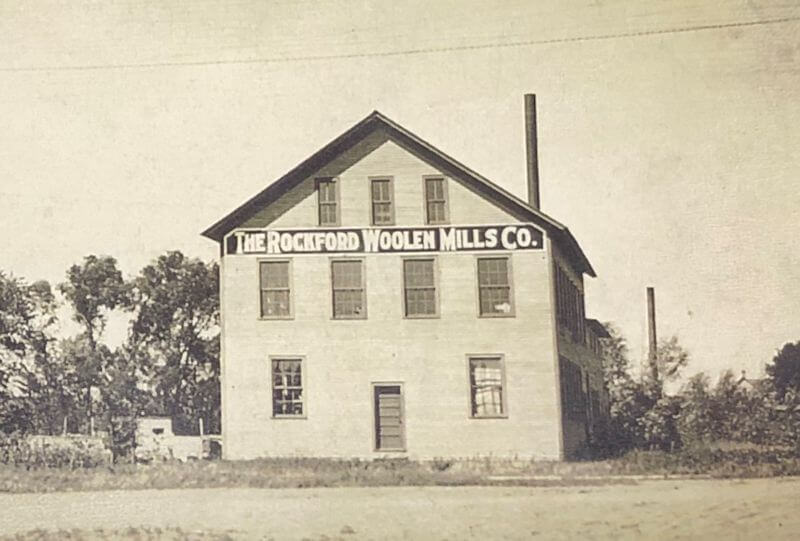
During 1881 the Rockford Woolen Mill was still running at maximum capacity. The mill had 7 looms weaving at least 5 different types of material. There was also machinery used for carding and spinning. Bricks had been purchased from Dayton Mn. to place above the boiler to protect the building from the heat generated. A large whistle was purchased and placed on the boiler that spring as well which was blown at noon each day. The mill was still running in November of 1881 with stoves keeping worker warm who had at that point produced over 25,000 yards of cloth. Early 1882 the dam again went out (this time due to natural causes) frustrating W.W Parker. The frustration of river issues and his failed attempt to move the mill to Howard Lake, Parker sold his shares to the other two owners (Jefferson Benner and Moses Waren) and N. T. Derby bought Parker’s house and lots.
During the entire decade of the 1880’s the mill continued to have immense success. Benner and Waren made additional investments in machinery, buildings and in people. The Rockford Woolen Mill had outlet stores in Delano (pictured below), Watertown, Monticello and Anoka. Benner was also considering branch stores in Stillwater and even Minneapolis. The mill also had three teams of salesmen who sold door to door; as well as independent retailers who sold there good as far away as Grafton North Dakota. During 1886 and 1890 the mill only show down for Christmas week trying to keep up with demand for goods.
In spite of all the positive strides made by the mill, there were many challenges that had to be overcome; a robbery in which over $500 of finished products were stolen, an employee (Art Sackett) running his hand into one of the weaving cards which took months to heal, work stoppages due to either high water or low water, and an official visit by the Minnesota State Commissioner of Labor to ensure proper treatment of workers (many of whom were younger girls). The state official was John Lamb, who was a strong proponent of unionization. Lamb found no issues with the conditions or treatment of the mill workers and no movement for unionization was made by either Lamb or the workers.
As Rockford’s most well know business thrived in the 1880’s, the next decade would prove to be more difficult to navigate.

 Rockford Woolen Mill – Part 3
Rockford Woolen Mill – Part 3
So interesting to learn about my family’s history that was never passed down in Rockford, MN.
Jefferson was my great grandfather.
His son Stanley was my grandfather and my father was Stanley. My father Stanley was a stoic man, so I will presume the same for the rest of the elder Benner’s of the time.
Thank you for bringing a bit of forgotten American history to light.
I forgot to add that because of the stoicism, family lore and history wasn’t talked about.
After my father passed away I found a $5 bill from 1885 that he had. I often wonder where he got it? Was it passed down perhaps from Jefferson? I will never know.